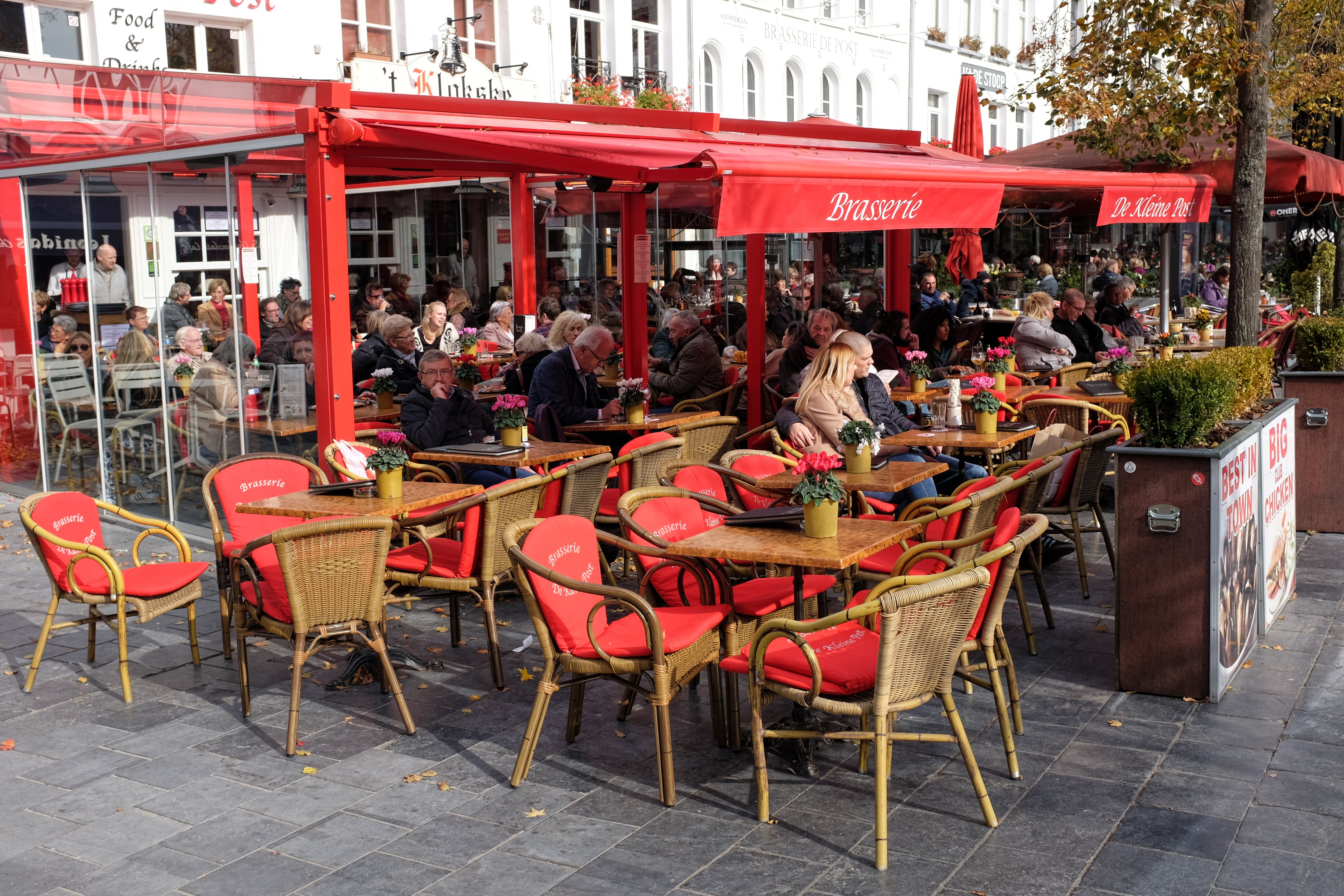brasserie on:
[Wikipedia]
[Google]
[Amazon]


 In France, Flanders, and the
In France, Flanders, and the


 In France, Flanders, and the
In France, Flanders, and the Francophone
French became an international language in the Middle Ages, when the power of the Kingdom of France made it the second international language, alongside Latin. This status continued to grow into the 18th century, by which time French was the l ...
world, a brasserie () is a type of French restaurant
French cuisine () is the cooking traditions and practices from France. It has been influenced over the centuries by the many surrounding cultures of Spain, Italy, Switzerland, Germany and Belgium, in addition to the food traditions of the r ...
with a relaxed setting, which serves single dishes and other meals. The word ''brasserie'' is also French for "brewery
A brewery or brewing company is a business that makes and sells beer. The place at which beer is commercially made is either called a brewery or a beerhouse, where distinct sets of brewing equipment are called plant. The commercial brewing of be ...
" and, by extension, "the brewing business". A brasserie can be expected to have professional service, printed menu
In a restaurant, the menu is a list of food and beverages offered to customers and the prices. A menu may be à la carte – which presents a list of options from which customers choose – or table d'hôte, in which case a pre-established seque ...
s, and, traditionally, white linen—unlike a bistro
A bistro or bistrot , is, in its original Parisian incarnation, a small restaurant, serving moderately priced simple meals in a modest setting. Bistros are defined mostly by the foods they serve. French home-style cooking, and slow-cooked foods ...
which may have none of these. Typically, a brasserie is open Wednesday to Sunday and serves the same menu all day. A classic example of a brasserie dish is steak frites.
Etymology
The term ''brasserie'' is French for "brewery
A brewery or brewing company is a business that makes and sells beer. The place at which beer is commercially made is either called a brewery or a beerhouse, where distinct sets of brewing equipment are called plant. The commercial brewing of be ...
", from Middle French ''brasser'' "to brew", from Old French ''bracier'', from Vulgar Latin ''braciare'', of Celtic
Celtic, Celtics or Keltic may refer to:
Language and ethnicity
*pertaining to Celts, a collection of Indo-European peoples in Europe and Anatolia
**Celts (modern)
*Celtic languages
**Proto-Celtic language
*Celtic music
*Celtic nations
Sports Foo ...
origin. Its first usage in English was in 1864.
The origin of the word probably stems from the fact that beer was brewed on the premises rather than brought in: thus an inn
Inns are generally establishments or buildings where travelers can seek lodging, and usually, food and drink. Inns are typically located in the country or along a highway; before the advent of motorized transportation they also provided accommo ...
would brew its own beer as well as supply food and invariably accommodation too. In 1901 ''Chambers's Twentieth Century Dictionary of the English Language'' defined "brasserie" as "in France, any beer-garden or saloon". In 2000 ''The New Penguin English Dictionary'' included this definition of "brasserie": "a small informal French-style restaurant".''The New Penguin English Dictionary'' ; consultant editor: Robert Allen. London: Penguin, 2000; p. 167
See also
*La Mère Catherine
La Mère Catherine is a ''brasserie'' in the 18th arrondissement of Paris, France. It is the oldest restaurant located at place du Tertre. It is situated in a building that previously served as the church presbytery of Saint-Pierre de Montmartr ...
(a Parisian brasserie founded in 1793)
* Gastropub
A gastropub or gastro pub is a pub that serves gourmet comfort food. The term was coined in the 1990s, though similar brewpubs existed during the 1980s.
Etymology
The term ''gastropub'' (derived from gastronomy) was coined in 1991, when David E ...
References
{{Authority control Restaurants by type French cuisine